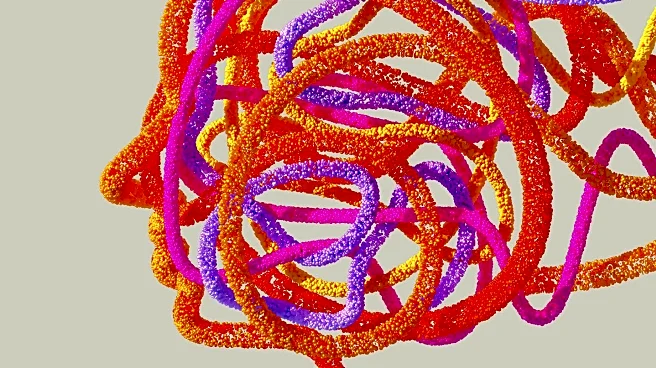What is the story about?
What's Happening?
Researchers have identified a receptor known as ALK7 that plays a crucial role in the spread of pancreatic cancer cells, specifically pancreatic ductal adenocarcinoma (PDAC). The study, published in Molecular Cancer, highlights how ALK7-driven pathways promote the metastasis of cancer cells. Pancreatic cancer is notorious for its aggressive nature and stealthy progression, often leading to late detection and a low five-year survival rate of 13.3%. The study explains the processes of extravasation and intravasation, which are critical in the spread of cancerous cells. By targeting and turning off ALK7 receptors, scientists believe they can halt these processes, potentially stopping the spread of cancer and improving survival rates.
Why It's Important?
Pancreatic cancer remains one of the deadliest forms of cancer due to its rapid metastasis and late detection. The discovery of the ALK7 pathway offers a promising avenue for developing treatments that could slow or even prevent the spread of cancer cells. This could lead to higher survival rates and more effective therapies, potentially revolutionizing the approach to treating pancreatic cancer. The ability to stop cancer progression at an early stage could significantly impact patient outcomes and reduce mortality rates associated with this aggressive disease.
What's Next?
Further research is needed to explore the potential of ALK7 receptor inhibition as a viable treatment strategy for pancreatic cancer. Clinical trials may be conducted to test the efficacy and safety of therapies targeting ALK7 pathways. If successful, these treatments could be integrated into existing cancer treatment protocols, offering new hope for patients diagnosed with pancreatic cancer. The scientific community will likely continue to investigate the molecular mechanisms behind ALK7-driven pathways to refine and optimize therapeutic approaches.
Beyond the Headlines
The identification of ALK7 pathways not only provides insights into pancreatic cancer but also opens up possibilities for understanding other cancers with similar metastatic behaviors. This discovery could lead to broader applications in oncology, potentially influencing treatment strategies for various types of cancer. Ethical considerations regarding access to new treatments and the cost of developing targeted therapies may arise as research progresses.
















